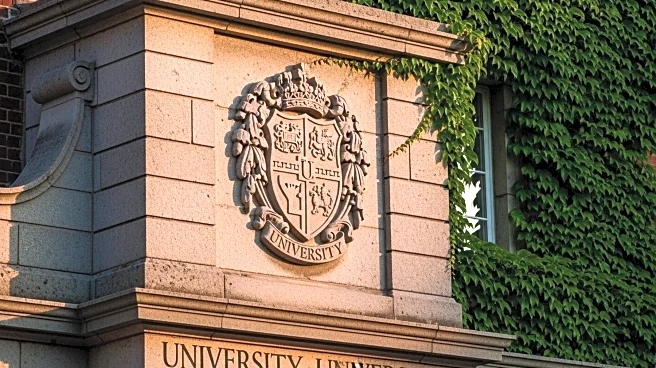What is the story about?
What's Happening?
The longstanding prestige of Ivy League schools like Harvard, Princeton, and Yale is being questioned as families reassess the value of elite education. Historically, these institutions have been seen as synonymous with enduring value, but rising tuition costs and a challenging job market are prompting parents to consider practical factors such as tuition costs, hands-on learning, and career outcomes. This shift in priorities is reflected in changing college application trends, with students increasingly applying to a mix of public and private schools, both in-state and out-of-state, rather than focusing solely on elite institutions.
Why It's Important?
The reevaluation of college prestige has significant implications for higher education and the job market. As families prioritize practical outcomes over brand names, colleges may need to adapt by emphasizing career readiness and affordability. This shift could lead to increased competition among institutions, potentially altering the landscape of higher education. For students, the focus on practical benefits may result in more diverse educational experiences and better preparation for the workforce. The changing perception of prestige also highlights the evolving expectations of parents and students regarding the value of a college degree.
What's Next?
As the perception of college prestige continues to evolve, institutions may need to reassess their strategies to attract students. This could involve expanding programs that emphasize career readiness, such as co-op programs and internships, and offering more financial aid to make education accessible. Colleges may also need to address concerns about the competitive environment and focus on creating supportive and inclusive communities. The ongoing shift in priorities may lead to further changes in college rankings and application trends, impacting the future of higher education.
Beyond the Headlines
The changing perception of college prestige raises ethical and cultural questions about the role of higher education in society. As families prioritize practical outcomes, the emphasis on elite institutions may diminish, potentially democratizing access to quality education. This shift could challenge traditional notions of success and redefine what constitutes a valuable educational experience. The evolving landscape of higher education also highlights the need for institutions to address issues of affordability and inclusivity, ensuring that all students have the opportunity to succeed.















